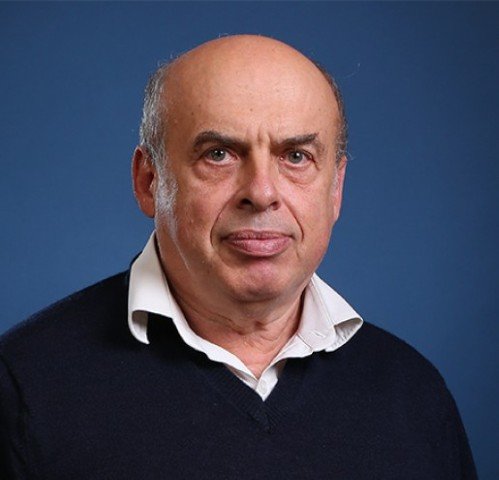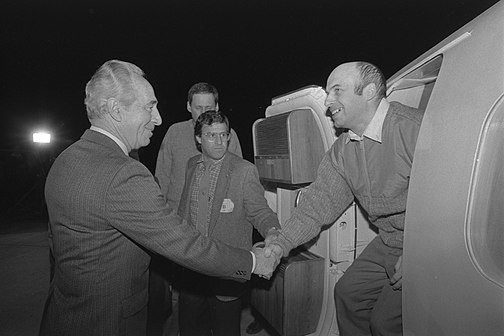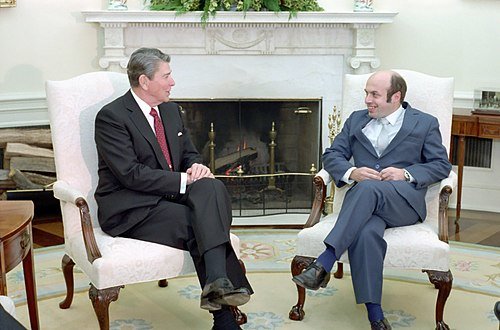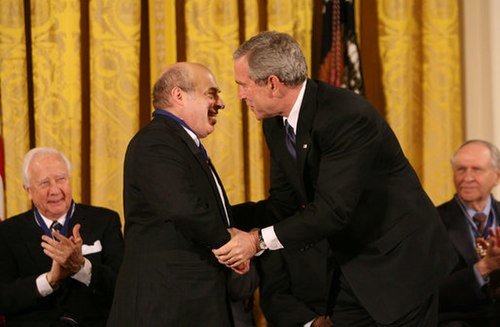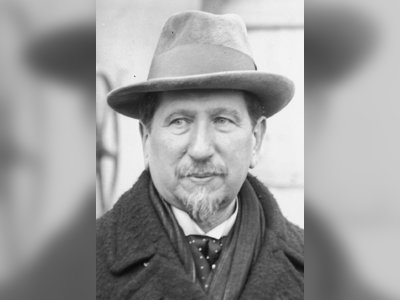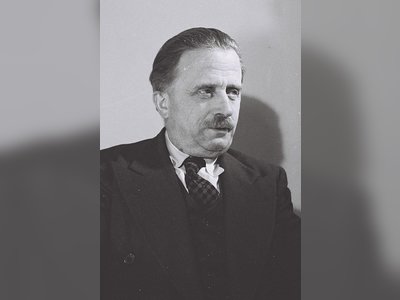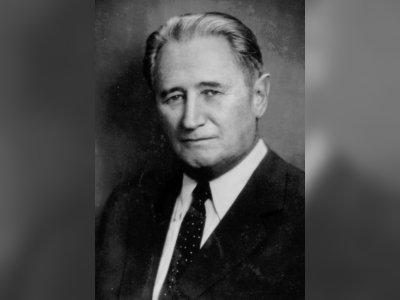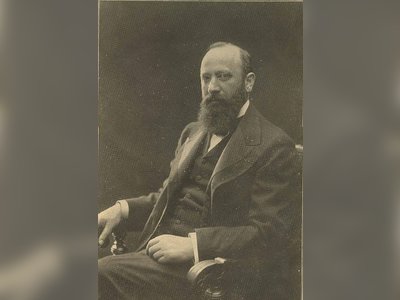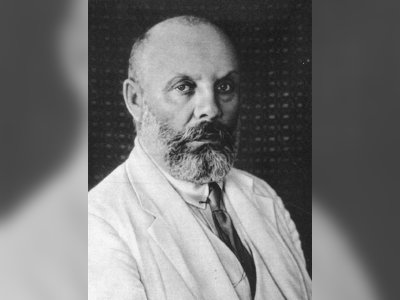מורשת גדולי האומה
בזכותם קיים
beta
Natan Sharansky: A Life of Courage and Conviction
Natan Sharansky, born Anatoly Borisovich Shcharansky in Dzerzhinsk, Ukraine (then part of the Soviet Union) on January 20, 1948, is a remarkable figure in the realms of politics, literature, mathematics, and human rights activism. He has served as the Chairman of the Jewish Agency, a member of the Israeli Knesset, and a minister in the Israeli government. However, before his journey to Israel, Sharansky gained notoriety as a Zionist dissident and refusenik in the Soviet Union.
Early Life and Education
Born as Anatoly Borisovich Shcharansky into a Jewish family, Sharansky displayed exceptional talent in the exact sciences and chess. He completed a degree in applied mathematics at the Moscow Institute of Technology. Sharansky was a passionate Zionist, encouraging Jews to make Aliyah (immigrate) to Israel.
As a Prisoner of Zion
In 1973, after his request for an exit visa to Israel was denied for "security reasons," Sharansky began working as a translator for the renowned physicist Andrei Sakharov. In 1974, he married Avital (Natalia) Stieglitz in a Moscow synagogue. Although Avital managed to immigrate to Israel shortly after their marriage, Sharansky was denied permission to join her. This separation inspired Sharansky to become an advocate for human rights, particularly for Jews who faced obstacles in making Aliyah.
Sharansky became a prominent figure in the Helsinki Watch Group, an organization dedicated to monitoring and reporting human rights violations in the Soviet Union, especially those related to the Helsinki Accords, which the Soviet Union signed in 1975, committing to safeguarding human rights. During this time, he also became a spokesperson for Soviet Jewish refuseniks and those seeking to immigrate to Israel.
In March 1977, Sharansky was arrested and charged with passing on a list of 1,300 names of refuseniks to Western authorities. Some of these individuals had been denied exit visas due to alleged state secrets. He was accused of espionage, incitement, and anti-Soviet activities. In July 1978, Sharansky was unjustly convicted of these charges and sentenced to 13 years in prison. During his time in captivity, he went on a hunger strike for approximately 200 days, protesting the harsh conditions.
Despite the harsh conditions, Sharansky's spirit remained unbroken. He persevered by engaging in activities like chess and exercises, even without a chessboard.
Sharansky's steadfast resistance made him a symbol of the struggle for human rights in the Soviet Union and the broader Jewish struggle.
Efforts for His Release
In 1978, reports emerged of a Soviet plot to exchange Sharansky for Soviet spies, but this plan did not materialize.
In response to advocacy led by Avital Sharansky and diplomatic pressure from Western governments, the Israeli Knesset passed a resolution demanding Natan Sharansky's release. On February 11, 1986, after serving nine years of his sentence, Sharansky was finally released as part of a deal in which the Soviet Union received five Soviet spies in exchange for three Western spies, including Sharansky. His release took place at the Glienicke Bridge, which connected East and West Germany.
Upon his release, President Ronald Reagan requested that Sharansky be released one hour before the other two spies to distinguish him, as he had been wrongly accused of espionage. Sharansky crossed the bridge on foot, despite instructions from his Soviet captors to ride. Immediately after crossing, he was handed his Israeli passport by the Israeli ambassador to Germany.
A Hero's Welcome in Israel
Upon his arrival in Israel, Sharansky requested that he be called "Natan" instead of "Anatoly," as he had clung to his Jewish identity throughout his ordeal. In May 1986, he and Avital traveled to the United States, where they were awarded the Congressional Gold Medal, the second-highest civilian award in the country, in recognition of their unwavering commitment to human rights.
In December 2006, Natan Sharansky was awarded the Presidential Medal of Freedom by President George W. Bush, becoming the first Israeli (before Shimon Peres) and the fourth non-American (after Nelson Mandela, Pope John Paul II, and Mother Teresa) to receive both the Congressional Gold Medal and the Presidential Medal of Freedom, the highest civilian honors in the United States.
Continued Activism and Leadership
In 1988, Sharansky was elected as the head of the Zionist Forum, an umbrella organization for Soviet Jewish immigrants. He also served as a council member for the organization Peace Watch and worked as an editor for the Jerusalem Report.
Natan Sharansky's life story is a testament to the power of resilience, courage, and unwavering commitment to human rights and the Jewish identity. His journey from a Soviet prison to a symbol of hope and freedom has left an indelible mark on history and continues to inspire generations worldwide.
- נתן שרנסקיhe.wikipedia.org
